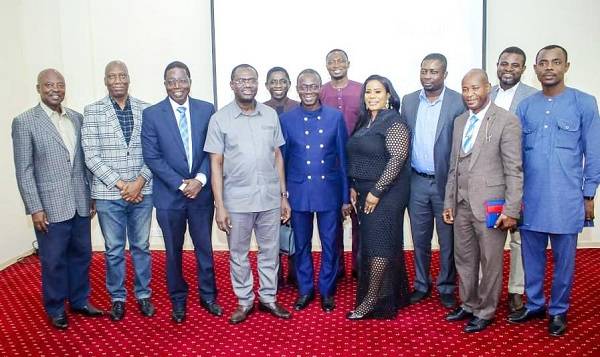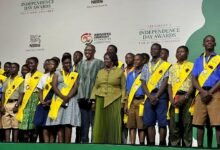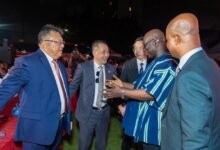
The Asian African Consortium (AAC), a subsidiary of Jospong Group of Companies has signed a Memorandum of Understanding with the University of Cape Coast (UCC) to undertake research to boost rice, maize and soya production in the country.

The objectives of this partnership are to identify common areas of collaboration to address the overall mandate of the parties, develop a plan for collaborative operations and detail the scope and principles of engagement between the parties, while aiming at achieving food efficiency in the country.
The Chief Executive officer (CEO) of the AAC, Mrs Adelaide ArabaSiawAgyepong, at the signing ceremony in Accra, last Thursday, noted that the agreement would facilitate ACC’s collaboration with the UCC research institutes across Ghana to deepen research and development for social change as well as deal with challenges for economic growth and development.
She further added that it would also facilitate the establishment of a research and development consortium comprising of business, crop science, technology, agriculture engineering, chemical engineering as a standing committee to advise on the full value chain in rice, maize, soya and the production of other staples.
“Again, this arrangement will facilitate the establishment of a seedling centre for the commercial production of seedlings for sale to farmers,” she hinted.
She emphasised that “the ACC’s integrated rice project is to make Ghana self-sufficient in rice production resulting in significant economic benefit for the country.”
Prof. Johnson Nyarko Boampong – Vice Chancellor of UCC reiterated that the University had a specialised training for students to become entrepreneurs and self-sufficient and also create jobs for others.
“We also focus on empowering our students with competences to succeed in life,” he added.
He lamented that with Ghana’s abundant resources and arable land, it still imported food, which it could produce locally.
Executive Chairman of Jospong Group, Dr Joseph SiawAgyepong, in a brief remarks noted that agriculture and research must go hand in hand to ensure that the country derived its full benefits.
He noted that rice was now a staple food in Ghana and initiatives must be taken to produce quality and the needed quantity backed by research and that cannot be achieved without the academia.
He encouraged the University to ensure that they came up with seedlings that could withstand the Ghanaian conditions as well as produce the needed yields for maximum benefits.
“We have the knowledge and resources to see this through, therefore you have no excuse not to perform,” he reminded the academia.
By Times Reporter







